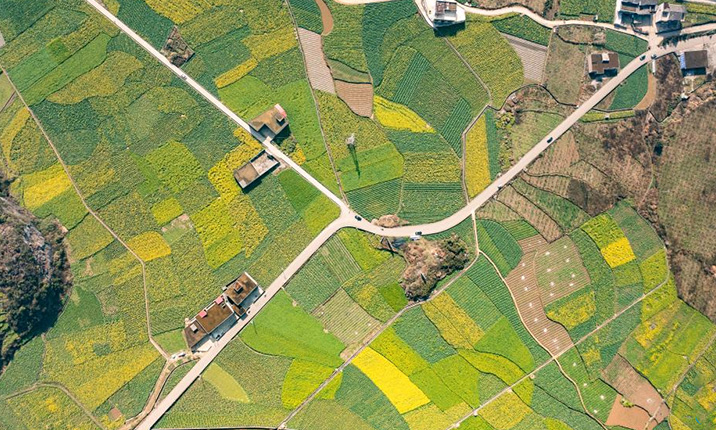Policies should focus on green and growth
Former head of UN body advises NPC deputies to aid environment, economy
Erik Solheim, former executive director of the United Nations Environment Programme, has some advice for deputies to the National People's Congress who will meet for the annual session in Beijing starting March 5.
Solheim has closely followed and been involved in the green and sustainable development of China.
"They should truly embrace the win-win proposition that all policies can be good for the environment and good for the economy at the same time," he said.
Citing a long list of related development projects, from green infrastructure and agriculture to electric mobility, Solheim said NPC deputies should ensure that the green transition is occurring properly in both developed and less-developed regions.
He added that the United States and European nations are facing similar challenges.
"So to focus on win-win and focus on fair transition, that's my advice as a foreigner," he said.
Solheim has been tweeting a lot about China's green development, including its high-speed rails, solar and wind mills and electric cars.
He called the 2022 Beijing Winter Olympic Games the first "net zero" Olympics, as they made use of renewable energy as well as electric and hydrogen vehicles.
"It was a breakthrough to have this focus on net zero to show Paris and Milan, which will hold the next two Olympics," he said, referring to the 2024 Summer Olympics and 2026 Winter Olympics, respectively.
Solheim said he was very impressed by China's shift from high-speed development to high-quality development. He said China has achieved the fastest economic development of any nation in human history and lifted all its citizens out of extreme poverty in the first few decades of its reform and opening-up efforts, which began in the late 1970s.
"Building on that, I think China is now into the next phase-h(huán)igh quality rather than just high quantity growth-and transitioning to an ecological civilization," he said.
He noted that China leads the world in terms of scale in every green technology, from solar and wind power to hydrogen and electric mobility, and it is becoming a leader in environmental protection practices.
"Certainly, it can still learn from the rest of the world, but the rest of the world can learn a lot from China," said Solheim, who served as Minister of Environment and Minister of International Development in Norway.
He was confident that China can fulfill its pledge to reach carbon neutrality by 2060, a promise President Xi Jinping made at the UN General Assembly in September 2020.
As an example of China's achievements, Solheim cited the fact that it produces 80 percent of the world's solar panels. This is one way in which it has been able to create jobs and boost its economic prosperity while being green. "That's the way forward."
He said that the world needs to cooperate more to tackle global challenges. As the Indian proverb says, the whole world is one family.
"If you work together, the sky is the limit. You can achieve everything," he said.
He added that this way of thinking also applies to building infrastructure in Africa, which some Western politicians and news media describe as regions in which major powers are vying for influence.
Solheim said that developing countries want firm partnerships with China, the US, the European Union and every nation in the world.
"They want investment and partnership, friendship and political contacts, and no one wants to choose (sides)," he said.
He said the initiatives by various countries in Africa should be seen as complementary instead of confrontational. "They should work together," he said.
Solheim cited China's strength of building some 40,000 kilometers of high-speed railways domestically.
"The United States has none. So how you can go to Africa with high-speed rails that you can't build at home?" he asked.
However, he added the US has some of the best universities in the world.
"They can invite African students to study in those universities," Solheim said.
Photos
Related Stories
Copyright © 2022 People's Daily Online. All Rights Reserved.










